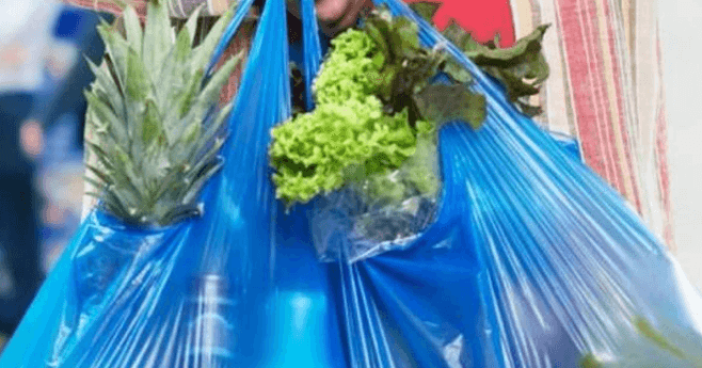Plastic bags are convenient and free to use, but their harmful impacts are finally being acknowledged. The use of plastic bags had been standard in many grocery and retail stores since the 1970s, but receiving a plastic bag for your purchased items is becoming increasingly rare in many cities. In fact, it might become impossible in the coming decades to get plastic bags from the grocery store as more bans and stricter laws are set in place around the globe.
Why is this an Environmental Issue?
As an alternative to the paper bag, plastic bags were introduced in grocery stores in 1977, with the modern-day polyethylene T-shirt-shaped bag introduced by Safeway and Kroger in 1982. By 2012, around 90% of all bags used in grocery stores were plastic. While these bags have been widely used for many decades, their harmful impact on the planet outweighs the benefit of having a cheap and efficient way to transport grocery items. Plastic waste makes up about 80% of all marine pollution. Polyethylene bags have a very slow decomposition rate—about 1,000 years—which allows these bags to remain in the ocean for a very long time.
Moreover, plastic bags do not undergo biodegradation but instead photo-degrade, meaning they break down into smaller plastic particles, easily absorbing toxins which then contaminate soils, waterways, and even the animals that ingest them.
Many of these bags remain in the Pacific Ocean as part of the Great Pacific Garbage Patch where large amounts of man-made debris accumulate due to the established ocean currents. According to a report by the Ocean Conservancy, plastic bags are the second most common type of refuse in oceans after cigarette butts, causing the death of many marine species that confuse the bags or their fragments for food.
It’s Not Just About the Plastic
Banning plastic bags is not just about reducing plastic refuse—it can also reduce anthropogenic impacts on the planet by reducing the use of fossil fuels. Halting the production of plastic bags can save companies a significant amount of money. The United States uses about 380 billion plastic bags each year. As a point of reference, 430,000 gallons of oil are used to make 100 million plastic bags. Surely our decreased reliance on plastic bags can reduce consumption of our finite fossil fuel supply and protect wildlife.
Plastic Bag Legislation
In the last 10 years, many cities, counties, and countries have taken measures to reduce plastic bag usage. In 2012, it was reported that 12 countries were considering banning or charging for bags, 9 countries had already passed fees on bag use, 35 countries had banned plastic bags, and 26 states had established some form of plastic bag legislation. It was the city of San Francisco, California, which set a precedent in 2007 within the U.S. San Francisco was the first city to enact plastic bag legislation which banned plastic bags from being used in large grocery stores and chain pharmacies. In 2012, this ban was then applied to all retailers in the city to support San Francisco in reaching its ‘zero waste’ goal.
China enacted its countrywide plastic bag legislation in 2008 by banning the production and use of China’s thinnest bags and requiring grocery and department stores to charge customers for bags. Five years after the ban in China, plastic bag consumption has decreased by 67 billion bags, which is equivalent to saving 6 million tons of oil. Plastic bag consumption has decreased by over 67% since the ban was first implemented in China.
In Los Angeles, California, plastic bag ban legislation has taken about 2 billion plastic carryout bags out of circulation and out of the oceans. When a city with a population of over 3.8 million people enacted the ban last January, it was instrumental in leading the way to the statewide ban in California. This September, California Governor Jerry Brown, signed a bill to ban the use of plastic bags, making it the first statewide ban in the country. According to a study by Californians Against Waste, the ban will allow for an annual savings of at least $265 million for businesses and an annual reduction in greenhouse gas emissions of 175,000 tons. Overall, this legislation will drastically reduce the 14 billion bags that are being used by Californians every year.
Legislation to reduce the use of plastic bags is advancing the movement in environmental sustainability. With the statewide ban in California and the countrywide ban in China, examples are being made for other U.S. states and other countries. These laws are laying the framework to enable all of us to reduce our impact on the planet, even with something as trivial as our everyday means of carrying items from point A to point B.
As a CDP silver climate change and SBT consultancy partner in North America with more than a decade of experience helping companies improve their CDP performance, ADEC ESG is uniquely positioned to support companies like yours in analyzing and improving on your disclosure performance. Contact us to learn more about how we can support your organization’s sustainability goals.




